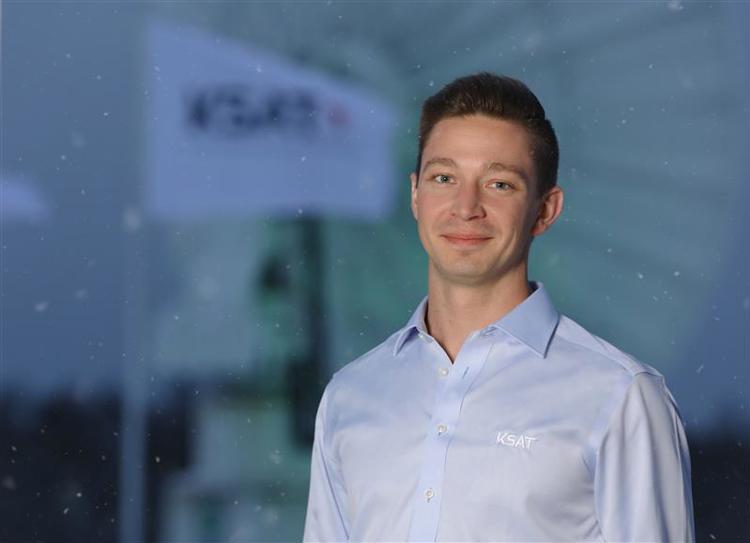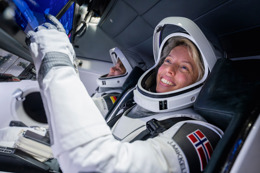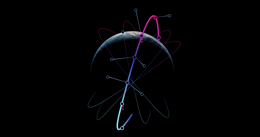Among this year’s honourees is KSAT’s own Director of Business Development Darren Charrier. He is recognised for his contributions to the development of lunar communications infrastructure and his dedication to enabling humanity’s next big step building a sustainable presence on the Moon.
“It all began with a book”
“My passion for space industry started in high school, when I read “Return to the Moon” by Apollo 17 astronaut Dr. Harrison Schmitt”, Darren recalls. “That’s when I learned about helium-3, a resource trapped in lunar soil that could one day become an almost unlimited source of clean energy on Earth. From that moment on, I knew I wanted to be a part of the future where humanity returns to the Moon.”
Building the bridge between Earth and the Moon
Nearly three years ago, Darren joined KSAT, where he now focuses on expanding the company’s lunar offering - developing communication capabilities that will enable future missions to thrive.
“If we’re going to have permanent settlements on the Moon, we need a robust communication infrastructure to support them,” he says. “That’s what KSAT is helping to build - the backbone that connects exploration, science, and sustainability.”
“I feel incredibly lucky to work on projects that are truly pioneering. Every day, I get to be part of something that pushes the boundary of what’s possible.”

Recognition and reflection
We asked Darren what this recognition means to him.
“It’s an honour,” Darren says. “Looking back at myself from years ago, it feels like confirmation that I’m moving in the right direction. It shines a light on the progress I’ve made and motivates me to keep going.”
Why the Moon matters
For Darren, the Moon represents both a technological challenge and a human calling.
“From an economic standpoint, it holds the key to developing sustainable and advanced fuel sources. Helium-3 could also become a coolant for quantum computing, helping us take the next leap in technology,” he explains. “But beyond that, there’s something deeply human about our desire to explore remote places. We dream, we long for new horizons. It’s who we are- it’s what we’re meant to do.”
Banner graphic: payloadspace.com



